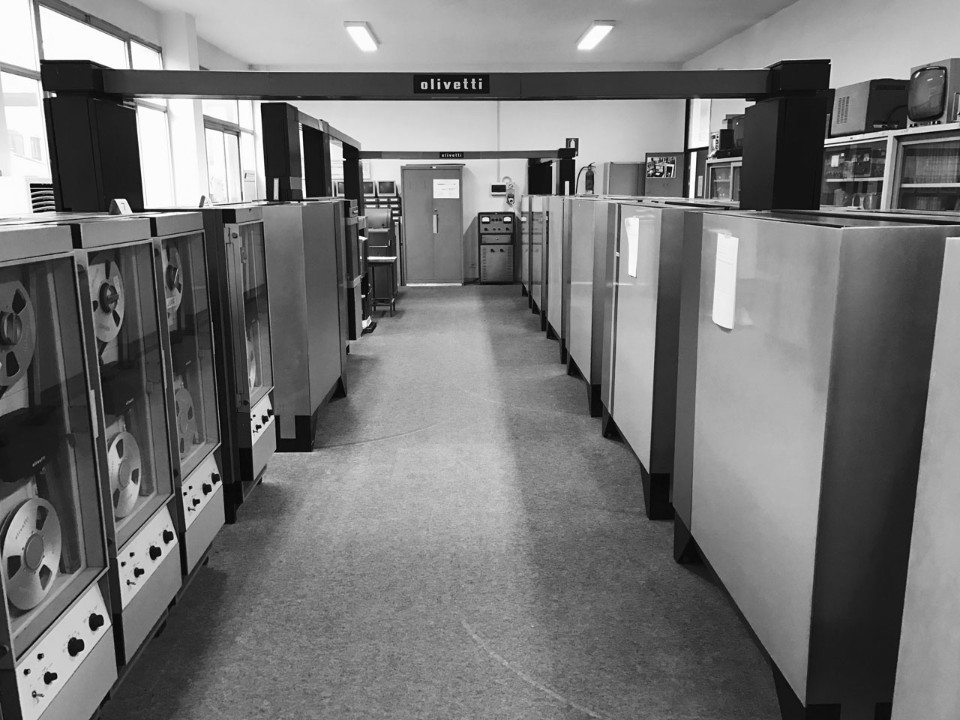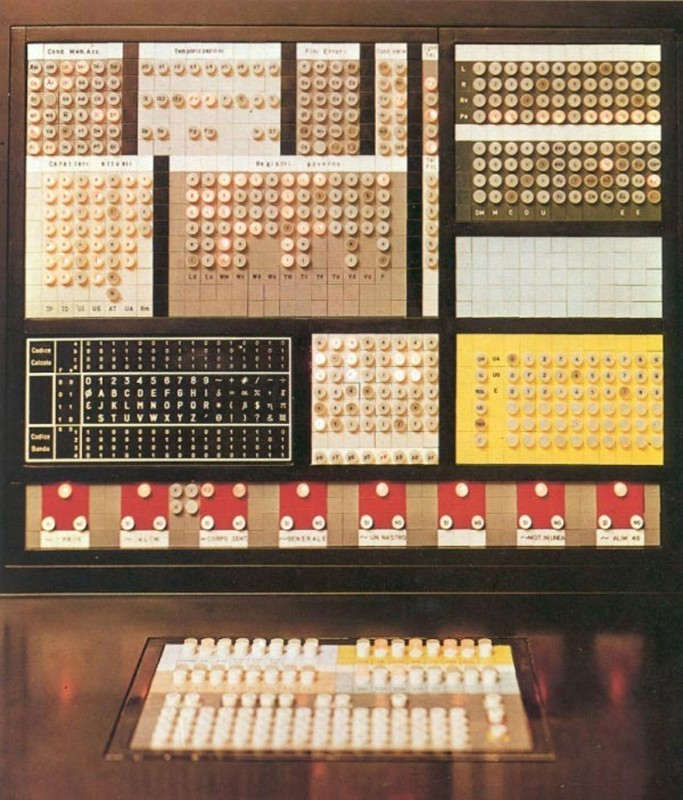
#Dow plastered #Singapore with ads for a sneaker #recycling program, promising to turn shoes into playground tracks. But the shoes it collected in "recycling" bins got dumped illegally in #Indonesia. This isn't strange: it's how nearly *all* plastic recycling *always* worked. 1/ 

If you'd like an essay-formatted version of this thread to read or share, here's a link to it on pluralistic.net, my surveillance-free, ad-free, tracker-free blog:
pluralistic.net/2023/02/26/car… 2/
pluralistic.net/2023/02/26/car… 2/
Plastic recycling's origin story starts in 1973, when #Exxon's scientists concluded that plastic recycling would never, ever be cost-effective (#ExxonKnew about this, too). 3/
Exxon sprang into action: they popularized the recycling circular arrow logo and backed "anti-littering" campaigns that blamed the rising tide of immortal, toxic garbage on peoples' laziness.
pluralistic.net/2020/09/14/the… 4/
pluralistic.net/2020/09/14/the… 4/
Remember the campaign where an Italian guy dressed like a Native American shed a single tear as he contemplated plastic litter? 5/
Funded by the plastic industry, as a way of shifting blame for plastic waste from the wealthy, powerful corporations who lied about plastics recycling to the individuals who believed their lies:
chicagotribune.com/opinion/commen… 6/
chicagotribune.com/opinion/commen… 6/
When I was a kid in Ontario, we had centralized, regulated, reusable bottle depots - beer and soda bottles came in standard sizes, differentiated by paper labels that could be pressure-washed off. 7/
When you were done with your bottle, you returned it for a deposit and it got washed and returned to bottlers to be refilled again and again and again. 8/
After intense lobbying from soda companies, brewers and the plastic industry, that program was replaced with curbside "blue boxes" that promised to recycle our plastic waste. 90% of the plastics created has never been - and will never be - recycled. 9/
Today, the plastic industry plans on *tripling* the amount of single-use plastic in use worldwide:
pluralistic.net/2022/04/26/pla… 10/
pluralistic.net/2022/04/26/pla… 10/
You know those ads from companies like #Bluetriton (formerly "#NestleWaters") that promise that your single-use plastic bottles are "100% recyclable...and can be used for new bottles and all sorts of new, reusable things?" 11/
Bluetriton is a #PrivateEquity-backed #rollup that has absorbed most of the bottled water companies you're familiar with, including #PolandSpring, #PureLife, #Splash, #Ozarka, and #Arrowhead. 12/
When they were sued in DC for making false claims about their "recyclable" water-bottles, their defense was that these were "non-actionable #puffery." 13/
According to Bluetriton, when it described itself as "a guardian of sustainable resources" and "a company who, at its core, cares about water," it was being "vague and hyperbolic."
pluralistic.net/2022/04/26/pla… 14/
pluralistic.net/2022/04/26/pla… 14/
With this standard for plastic recycling, Dow's Singapore scam shouldn't come as a surprise, but it seems to have surprised Singapore's government. On @Reuters, @JoeReuters, Yuddy Cahya Budiman and Joseph Campbell tell how they caught Dow red-handed:
reuters.com/investigates/s… 15/
reuters.com/investigates/s… 15/
The method is actually pretty straightforward: Reuters hid tracking devices in cavities in the soles of sneakers, dropped them in one of Dow's collection bins, and then followed them. 16/
The shoes were passed onto Dow's subcontractor, #YokImpexPteLtd, who sent them hopping from island to island throughout Indonesia, until they ended up in junk-markets. 17/
Not all the shoes, though - one pair was simply moved from Dow's collection bin to a donation bin at a Singaporean community center. Of the 11 pairs that Reuters tracked, not one ended up at a recycling facility. 18/
So much for Dow's slogan: "Others see an old shoe. We see the future."
Dow blamed all this on Yok Impex, but didn't explain why its "recycling" program involved a company whose sole trade is exporting used clothing. 19/
Dow blamed all this on Yok Impex, but didn't explain why its "recycling" program involved a company whose sole trade is exporting used clothing. 19/
Dow promised to cancel its deal with Yok Impex, but Yok Impex's accountant told Reuters that the deal would be remain in place until the end of the contract. 20/
Yok Impex, meanwhile, shifted the blame to the low-waged women who sort through the clothing donations it takes in from across Singapore. 21/
Indonesia bans bulk exports of used clothes, on the grounds that used clothes are unhygenic, displace the local textiles industry, and shipments contain high volumes of waste that ends up in Indonesian incinerators, landfills and rivers. 22/
In other words, Singaporeans thought they were saving the planet by putting their shoes in Dow bins, but they were really sending those shoes on a long journey to an unlicensed dump. 23/
Dow enlisted schoolchildren in used-shoe collection drives, making upbeat videos that featured students like Zhang Youjia boasting that they "contributed 15 pairs of shoes." 24/
Dow does this all the time. In 2021, Dow's "breakthrough technology to turn plastic waste into clean fuel" in Idaho was revealed to be a plain old incinerator:
reuters.com/investigates/s… 25/
reuters.com/investigates/s… 25/
Also in 2021, in India, a Dow program to "use high-tech machinery to transform the [plastic from the Ganges] into clean fuel" was revealed to have ceased - but was still collecting plastic and promising that it was all being turned into fuel:
reuters.com/article/us-env… 26/
reuters.com/article/us-env… 26/
Dow operates a nearly identical "shoe recycling" program in neighboring Malaysia, and did not return Reuters' requests for comment as to whether the shoes collected for "recycling" in the far more populous nation were also being illegally dumped offshore. 27/
The global business lobby *loves* the idea of "#PersonalResponsibility" and its evil twin, "#CaveatEmptor." 28/
Its pet economists worship the idea of "#RevealedPreferences," claiming that when we use plastic, we may *claim* that we don't want to have our bodies poisoned with immortal, toxic microplastics, that we don't want our land and waters despoiled. 29/
We *actually* love it, because otherwise we'd "vote with our wallets" for something else.
The obvious advantage of telling people to vote with their wallets is that the less money you have in your wallet, the fewer votes you get. 30/
The obvious advantage of telling people to vote with their wallets is that the less money you have in your wallet, the fewer votes you get. 30/
Companies like Dow have used their access to the capital markets (a fancy phrase for "rich people") to gobble up their competitors, eliminating "wasteful competition" and piling up massive profits. 31/
Those profits are laundered into policy - like replacing Ontario's zero-waste refillable bottle system with a "recycling" system that sent plastics to the ends of the Earth to be set on fire or buried or dumped in the sea. 32/
The ruling class's pet economists have a name for this policy laundering: they call it #RegulatoryCapture. 33/
Now, when *you* hear "regulatory capture," you might think about companies that get so big that they are able to boss governments around, with the obvious answer that companies need to be regulated *before* they get too big to jail:
doctorow.medium.com/small-governme… 34/
doctorow.medium.com/small-governme… 34/
But that's not how elite economists talk about regulatory capture: for them, capture starts with the *very existence* of regulators. 35/
For them, any government agency that proposes to protect the public from corporate fraud and murder *inevitably* becomes an agent of the corporations it is supposed to rein in, so the only answer is to *eliminate regulators altogether*:
doctorow.medium.com/regulatory-cap… 36/
doctorow.medium.com/regulatory-cap… 36/
This nihilism lets rich people blame the rest of us for their sins: "if you didn't want your children to roast or freeze to death in the climate emergency, you should have sold your car and used the subway (that we bribed your city not to build)." 37/
Nihilism is contagious. Think of the music industry: before #Napster, 80% of the music ever recorded was not for sale, banished to the scrapheap of history and the vaults of record companies who paid farcically low sums to their artists. 38/
During the #FileSharing Wars, listeners were excoriated for failing to pay for music - much of which wasn't for sale in the first place. But today, fans overwhelmingly pay for #Spotify, a streaming service that notoriously pays musicians infinitesimal sums for their work. 39/
Spotify is a creature of the Big Three labels - #Sony, #Universal and #Warner - who own 70% of all the world's recorded music copyrights and 65% of all the world's music publishing. The rock-bottom per-stream prices that Spotify pays were set by the Big Three. 40/
Why would the labels want *less* money from Spotify?
Simple: as co-owners of Spotify, they make more money when Spotify pays less for music. 41/
Simple: as co-owners of Spotify, they make more money when Spotify pays less for music. 41/
Musicians have a claim on the money they take out of Spotify as royalties - but dividends, buybacks and capital gains from Spotify are the labels' to use as they see fit. They can share that bounty with some artists, all artists, or no artists. 42/
Not only that, but the Big Three's deal with Spotify includes a #MostFavoredNation clause, which means that the artists who aren't under Sony/UMG/Warner's thumb get the rock-bottom rate the Big Three insisted on - likewise the small labels who compete with the Big Three. 43/
The difference is that none of these artists and small labels have massive portfolios of Spotify stock, nor do they get free advertising on Spotify, or free inclusion on hot Spotify playlists, or monthly minimum payouts from Spotify. 44/
The idea that we shop at the wrong kind of monopolist in the wrong way is a recipe for absolute despair. It doesn't matter whether you listen to music with the Big Tech-owned monopoly service (#Youtube) or the Big Content-owned monopoly service (Spotify). 45/
The money you hand over to these giant companies goes to artists the same way that the sneakers you put in a Dow collection bin goes to a recycling plant. 46/
Think of the billions of human labor hours we all spent washing and sorting our plastics for a recycling program that didn't exist and will never exist - imagine if we'd spent that time and energy demanding that our politicians hold petrochemical companies to account instead. 47/
At the end of *Break 'Em Up,* @ZephyrTeachout's outstanding 2020 book on #monopolies, Teachout has some choice words for "#consumerism" as a theory of change. 48/
She writes that if you're on your way to a protest against a new #Amazon warehouse but you never make it because you waste too much time looking for a mom-and-pop stationers to sell you a marker to write your protest sign, Amazon wins:
pluralistic.net/2020/07/29/bre… 49/
pluralistic.net/2020/07/29/bre… 49/
The problem isn't that you shop the wrong way. Yes, by all means, support the creators and producers you care about in the way that they prefer, but keep your eye on the prize. Structural problems don't have individual solutions. 50/
The problem isn't that you have chosen single-use plastics - it's that in our world everything for sale is packaged in single-use plastics. 51/
The problem isn't that you've bought a subscription to the wrong music streaming service - it's that labels have been allowed to buy all their competitors, creators' unions have been smashed and degraded, and giant accounting scams by big companies generate minuscule fines. 52/
The good news is that after 40 years of despair inducing regulatory nihilism and "vote with your wallet" talk, we're *finally* paying attention to systemic problems, with a new generation of trustbusting radicals working around the world to end corporate impunity. 53/
Dow is a repeat offender. A repeat, repeat offender. Chrissakes, they're the linear descendants of #UnionCarbide, the company that poisoned #Bhopal:
en.wikipedia.org/wiki/Bhopal_di…
They shouldn't be trusted to run a lemonade stand, let alone a "recycling" program. 54/
en.wikipedia.org/wiki/Bhopal_di…
They shouldn't be trusted to run a lemonade stand, let alone a "recycling" program. 54/
The same goes for Big Tech and Big Content company and the markets for creative labor. These companies have repeatedly demonstrated their unfitness, their habitual deception and immorality. 55/
These companies *have* captured their regulators, repeatedly, so we need better regulators - and weaker companies. 56/
The thing I love about Teachout's book is that it talks about what we should be demanding from our governments - it's a manifesto for a movement against corporate power, not a movement for "responsible consumerism." 57/
That was the template that @rgibli and I followed when we wrote #ChokepointCapitalism, our book about the brutal, corrupt creative labor market:
chokepointcapitalism.com 58/
chokepointcapitalism.com 58/
We have a chapter on Spotify (multiple chapters, in fact!). For our audiobook, we made that chapter a "Spotify Exclusive" - it's the only part of the book you can get on Spotify, and it's free:
pluralistic.net/2022/09/12/str… 59/
pluralistic.net/2022/09/12/str… 59/
• • •
Missing some Tweet in this thread? You can try to
force a refresh













